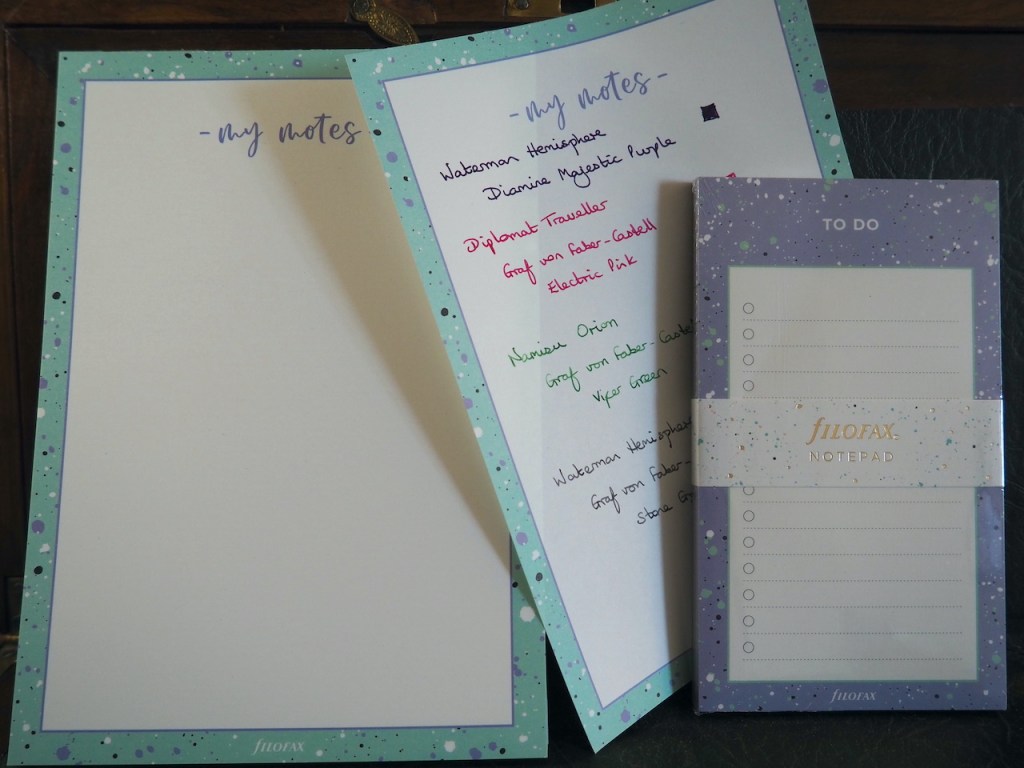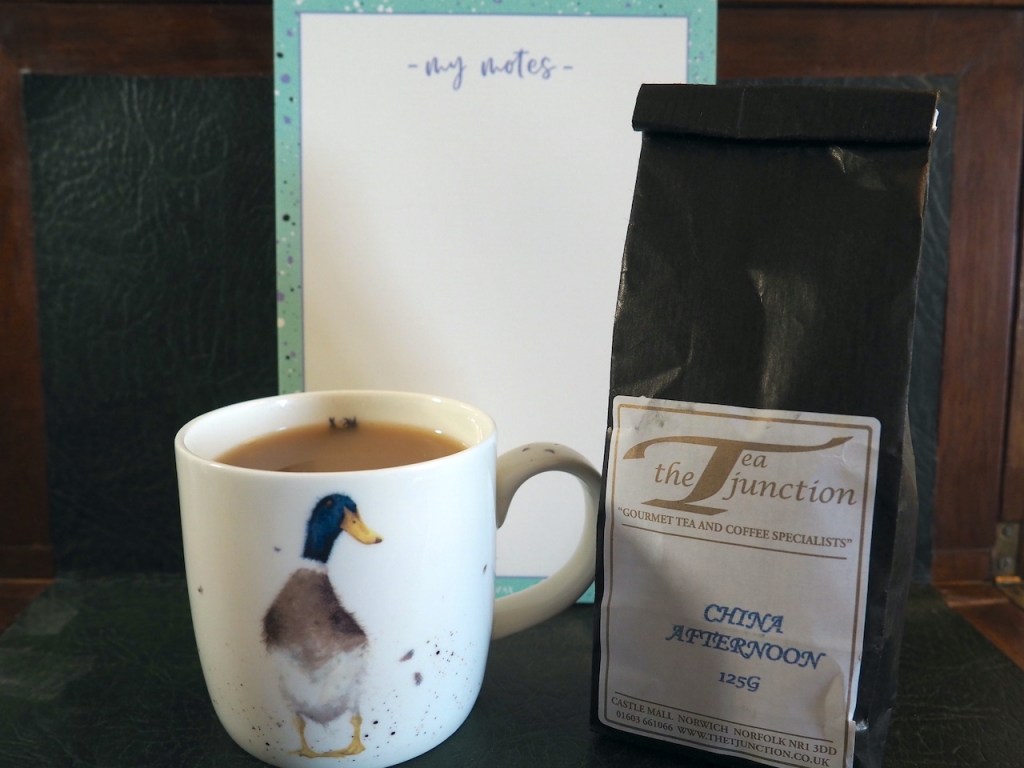
It’s hard to be a perfectionist in a world where nothing is ever perfect. There are definitely things which I opt out of because they are irredeemably far from perfect, but the vast majority of things only fall short in a small way and then I have to decide whether or not I will accept them for what they are. For example, there are wools that are a dream to knit, but which pill if you breathe on them and shrink when they see water. There are pens which don’t write quite as well as you’d like them to. There are planner pages which have a perfect layout but the designer has chosen to overlay every blank area with a dot-grid.
There are things, for example, like this paper

Filofax have come out with these new pads and I immediately shelled out the readies for them because they are so pretty. Now they are here and I am struggling to forgive them for being made in China when I want to be buying things that are sourced a lot closer to home. They are good enough with fountain pen ink, it spreads a bit and there is show-through but not enough to worry me and I am picky about it. Yet I can’t help but think that there is paper of equal – sometimes better – quality being made in the country which both I and Filofax call home, and I question whether that decoration justifies shipping the paper across the world? Why are distant countries so often the default manufacturing location for companies based in our own back yard?
I invested quite some time in puzzing over this, failing to find any magical combination of large company/local manufacture/satisfactory decor, and strategising ways to get what I want whilst remaining true to my self-imposed beliefs on the correct way to conduct my life. In need of a drink, I went and made a cup of tea.

As the kettle boiled, I asked myself why I have no qualms about this tea which, its very name clearly indicates, has been shipped over from China, whilst I simultaneously object to shipping my paper from the same location. They could have come across in the same container! And that, my friends, is where the disconnect happens. I completely believe that my pads of paper came across the sea on a massive, smelly steel ship piled high with enormous containers, each of which could easily be turned into a home at least the size of my flat. However, I somehow believe that my tea has come to England on board one of James Onedin’s clippers, racing to be the first to bring the new harvest to the docks of Liverpool and thence to the whole country via steam train and canal barge, the only pause on the whole journey having been when the crew stopped for a quick sea shanty before Captain Baines chivvied them back to work.
Clearly, it makes no sense to dislike a product simply based on where it is produced, and we would be nowhere at all if we didn’t have a strong history of imports. I, for one, am not about to eschew my several daily cuppas in favour of small beer, even if that is more traditional. And so I have decided that, whilst I won’t make these pads a regular purchase, I will embrace them as a lovely treat and make sure that the majority of my paper purchases will be from more local producers.
As to the dividers which adorn my Filofax, these, too, are from China. They are plastic. They will endure to the end of time and so I don’t have to worry about needing to replace them. My tea, on the other hand, is strictly one use only, so my carbon footprint will have to take that one for the team.
I spend quite some time making sure things I buy are shipped within the UK, I ignore the fact that they’ve previously been shipped thousands of miles to reach my UK warehouse. I buy quite a lot of things secondhand, or ‘pre-loved’ as we now call it, again making sure it’s from within the UK. As with so much we can only do what we can do, so much that is deemed OK environmentally takes huge amounts of energy to produce and if you think about the energy used to produce the machinery to make the item it’s a rabbit hole it’s best not to slip down.
Its impossible to get all things local, so i just try to get more local food